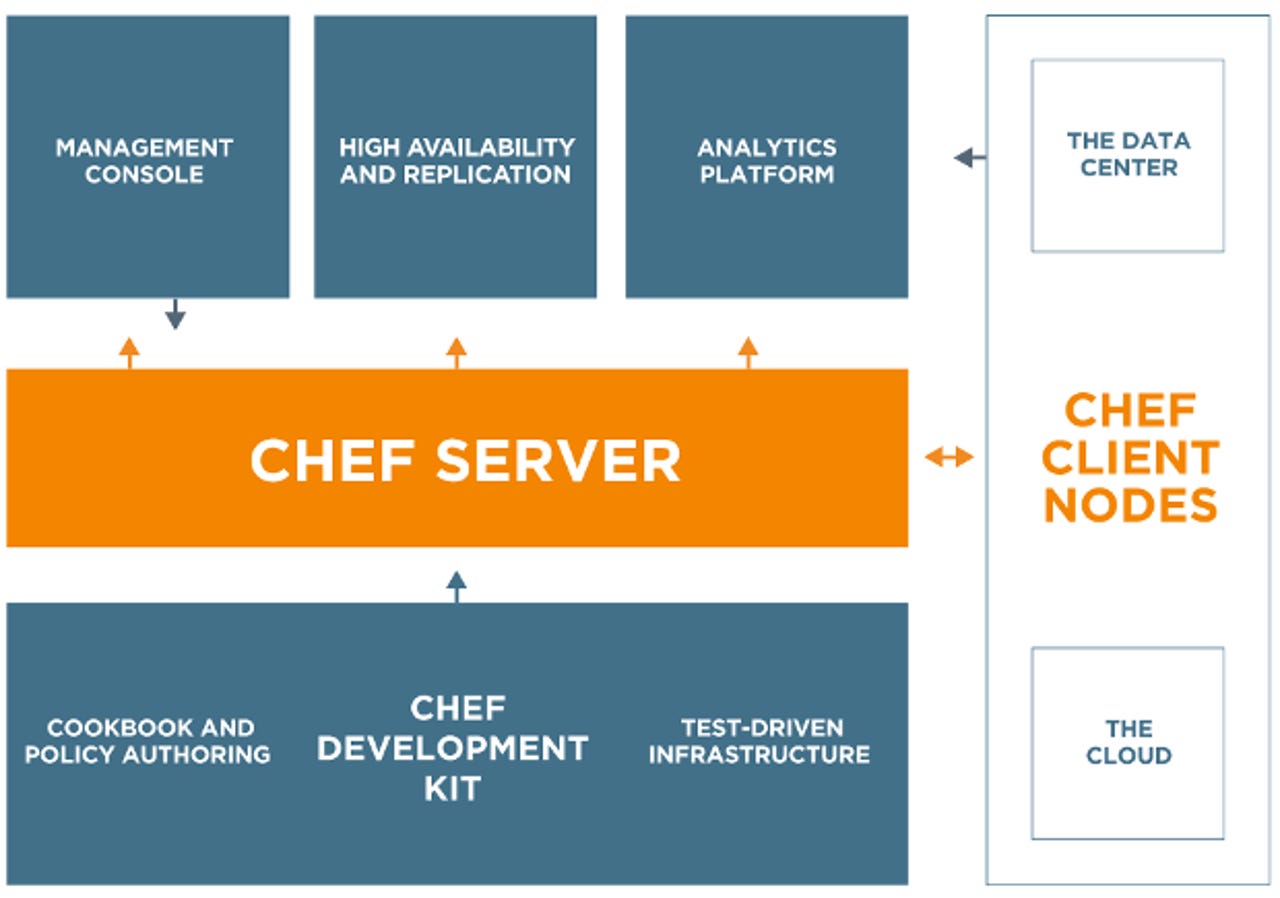Canonical to integrate Chef DevOps into Ubuntu

You may think of Ubuntu as a desktop Linux, and it is, but it's also the most popular Linux on Amazon EC2 cloud and very popular on most other cloud platforms. So it only makes good sense that Canonical, Ubuntu's parent company, has partnered with Chef, one of the most popular DevOps companies.

To make DevOps easier, there are numerous programs, such as Chef and its rivals Ansible, Puppet, and Salt, to get corporate programming and administrator teams quickly up to speed. Indeed, Canonical has its own high-level DevOps program, Juju. While very useful, Juju is more suited for server software deployment, management, and scaling, than the whole spectrum of DevOps operations. That's where Chef comes in.
As Chef's CEO Barry Crist explained in a statement, "Every business needs to spend fewer calories on IT management and are looking to automation and cloud-ready platforms to do so. Combining Chef's scale and flexibility with Ubuntu's tremendous Linux platform empowers users to easily manage everything from bare metal servers to large-scale clouds."
Chef is designed to automate how you build, deploy, and manage your infrastructure in "recipes." The goal is to make your cloud infrastructure as versionable, testable, and repeatable as application code.
These recipes are stored in the Chef server. On every server and virtual machine (VM) on your cloud, a Chef client periodically polls for the latest Chef server recipes. If anything is out of date, the client brings it up to speed.
What a hybrid cloud is in the 'multi-cloud era,' and why you may already have one
All of this, of course, when added to Ubuntu will make both more attractive for IT departments looking for an all-in-one cloud solution.
Specifically, the two companies are offering the following Chef/Ubuntu combinaton:
- Automated Bare-Metal Provisioning: Leveraging Chef and Canonical's MAAS [Metal as a Server], users can rapidly deploy bare metal machines with a choice of Ubuntu, CentOS, RHEL, SuSE and even Windows, either in the data-center or as part of a private or hybrid cloud implementation. With MAAS and Chef, private infrastructure becomes as easy to provision as public cloud resources. Chef users can leverage a Chef recipe to deploy a MAAS server. In addition they can use a knife plugin for MAAS to enable Chef to provision and work with bare metal servers.
- Ubuntu Distribution of Chef: Canonical will distribute Chef 12 with future versions of Ubuntu. Chef is already present in the Ubuntu code-base, so it will be in the forthcoming Ubuntu 15.04. It will also be fully supported in the latest Ubuntu Long Term Support (LTS) version, 14.04. "On the LTS editions, Canonical and GetChef have agreed to provide the latest and greatest Chef packages," said Dustin Kirkland, Ubuntu Cloud Project Manager, in an e-mail interview.
- Canonical Support for Chef: As part of the packaged Chef and Ubuntu distribution, Canonical will provide Tier One and Tier Two support for all Chef deployments within its user base.
In a statement, Canonical founder Mark Shuttleworth, said, "Chef and Ubuntu are often inseparable in serious server deployments, making mutual integration a must for our users." As for Juju, Kirkland assured me that Juju still had Canonial's full support. "despite a a few trolls out there calling this 'the death of Juju.'" He continued, "Canonical and Chef are giving the Linux world an excellent path to modern, bare metal provisioning and configuration management of physical hardware."
Related Stories: